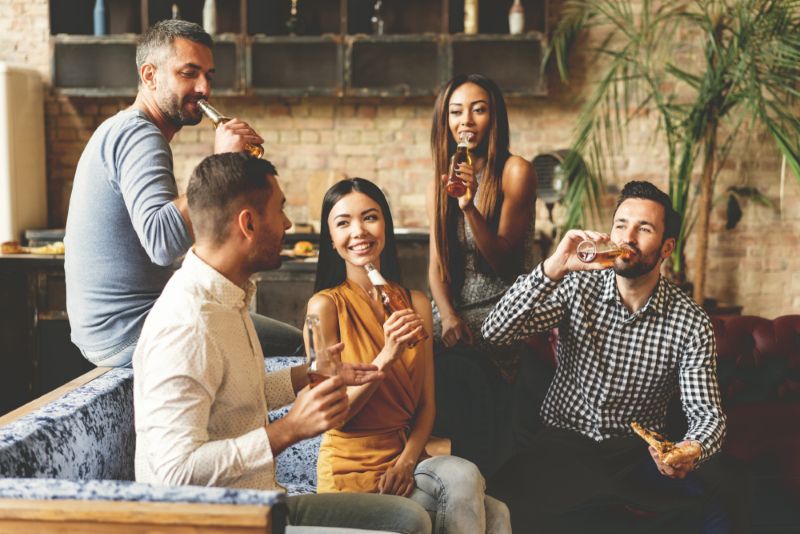Slip and fall accidents don’t just happen in grocery stores or on icy sidewalks outside businesses—they also happen at private residences. But if someone slips, trips, or falls while visiting a home in New York, can the homeowner actually be held legally responsible? The answer is yes—homeowners can be liable for slip and fall injuries that occur on their property, depending on the circumstances. Like commercial property owners, homeowners have a legal duty to keep their premises reasonably safe for guests.
At Shafran & Rock, we help injury victims across Kingston and the Hudson Valley understand their rights and options after a serious fall. Here’s what you need to know about homeowner liability in New York.
What Is Premises Liability?
Premises liability is a legal principle that holds property owners responsible for maintaining safe conditions on their land or in their buildings. If a person is injured due to a dangerous or defective condition on the property—and the owner failed to address it or warn about it—the injured person may have a valid legal claim. In the case of homeowners, this means they may be held liable if:
- There was a hazard on the property (such as an icy walkway, broken step, or loose rug)
- They knew or reasonably should have known about the danger
- They failed to take action to fix the hazard or warn visitors
- The hazardous condition caused someone’s injury
New York law requires property owners to take reasonable steps to prevent foreseeable injuries.
Who Can Sue a Homeowner for a Slip and Fall?
Not every person who enters a property has the same legal standing. New York classifies visitors into three categories, and liability depends on the visitor’s status:
1. Invitees
These are people who are invited onto the property for mutual benefit—like contractors, delivery workers, or even guests attending a party. Homeowners owe the highest duty of care to invitees and must take reasonable steps to keep the property safe.
2. Licensees
These are social guests who are on the property with the homeowner’s permission, but not for commercial reasons. The homeowner still has a duty to warn them of known hazards.
3. Trespassers
Homeowners generally owe no duty of care to trespassers—except that they cannot intentionally harm them, and in the case of children, they may need to secure certain hazards (like pools or trampolines). In most slip and fall cases at residential properties, the injured party is either an invitee or a licensee and may be entitled to compensation if the homeowner was negligent.
If you’ve been injured on someone else’s property, our slip and fall attorneys can help evaluate your case and explain your legal rights under New York law.
Common Slip and Fall Hazards at Homes
Slip and fall accidents can happen for many reasons, and at private residences, common hazards include:
- Snow or ice on sidewalks, steps, or driveways
- Loose floorboards or stair treads
- Wet floors with no warning signs
- Area rugs or mats that slide easily
- Poor lighting in hallways or staircases
- Broken handrails
- Cluttered walkways or obstructed paths
If the homeowner knew about these dangers and failed to fix them or provide warning, they may be liable for any resulting injuries.
How Homeowners Can Protect Themselves
While this blog is primarily for injury victims, homeowners should also take steps to avoid liability. These include:
- Regularly inspecting and maintaining walkways, stairs, and other high-traffic areas
- Promptly shoveling snow and using salt or sand in icy conditions
- Installing sufficient lighting both indoors and outdoors
- Securing loose rugs or floor coverings
- Repairing broken steps, railings, or uneven flooring
Homeowners should also make sure their homeowners’ insurance policy includes liability coverage in case an injury does occur on their property.
What Should You Do After a Slip and Fall on Private Property?
If you’re injured in a slip and fall accident at someone’s home, it’s important to take the right steps to protect your health and your legal rights:
- Seek medical attention right away, even if injuries seem minor
- Take photos of the scene and the condition that caused your fall
- Get the names of any witnesses
- Report the injury to the homeowner (in writing, if possible)
- Do not give a recorded statement to an insurance company before speaking with a lawyer
The sooner you consult with a slip and fall attorney, the better your chances of preserving critical evidence and building a strong case.
Contact Shafran & Rock—You Don’t Have to Handle This Alone
Slip and fall injuries can lead to serious medical bills, missed work, and long-term pain. If your accident happened on someone else’s property, you may be entitled to compensation for your damages. At Shafran & Rock, we understand how complicated—and emotional—these cases can be. Our team is here to listen, investigate your claim, and help you hold negligent property owners accountable.
If you’ve been injured in a fall at someone’s home, reach out to us today. We’re ready to help you pursue the justice and compensation you deserve.

